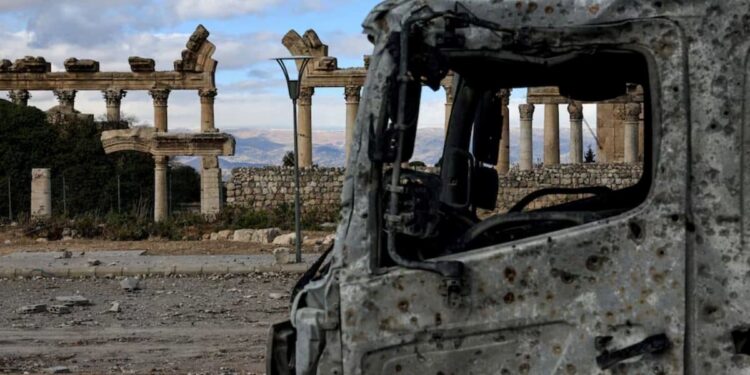Lebanon, reeling from the aftermath of a prolonged conflict with Israel, is confronting reconstruction costs that could exceed $25 billion. A recent ceasefire offers a glimmer of hope for recovery, but experts stress that political reforms and institutional stability are vital for sustainable economic rehabilitation.
“The restoration of confidence requires political authorities to safeguard the ceasefire, address the constitutional vacuum, and re-establish the cohesive role of the State and its army,” said Marwan Barakat, Group Chief Economist and Head of Research at Bank Audi, in an interview with Arabian Business.
Already enduring one of the world’s worst financial crises, as described by the World Bank, Lebanon’s economy has been further battered by over a year of conflict. Real GDP is now projected to contract by 5.7% this year, a stark contrast to the pre-conflict growth forecast of 0.9%.
While the ceasefire creates an opportunity to address Lebanon’s political stalemate, significant challenges remain. “The ceasefire offers Lebanon a rare chance to break the cycle of instability and foster long-term growth,” said Imad Salamey, senior Middle East policy advisor and associate professor at Lebanese American University. He warned, however, that recovery will be slow and modest despite a reduction in conflict-related risks.
A recent World Bank report estimates the cost of physical damages and economic losses from the conflict at $8.5 billion over the past year, with $3.4 billion attributed to structural damage and $5.1 billion in economic losses. The devastation has been particularly severe in urban centers such as Tyre, Nabatiyeh, and Baalbek, key hubs for tourism and commerce, which suffered extensive damage from Israeli strikes.
Sectoral losses include $1.6 billion in commerce, $1.1 billion in agriculture, and $1 billion in tourism and hospitality, highlighting the widespread economic impact of the conflict.
Looking ahead, Bank Audi has outlined three possible economic scenarios for 2025. In the most optimistic scenario, Barakat noted, “Real GDP growth could exceed 8%, inflation would decline to global levels, central bank reserves would be significantly bolstered, and the balance of payments could achieve a surplus of no less than $4 billion.”
The reconstruction challenge is daunting, particularly when compared to past conflicts. The 2006 war between Hezbollah and Israel incurred reconstruction costs of approximately $3 billion, a fraction of the current estimates.














































































